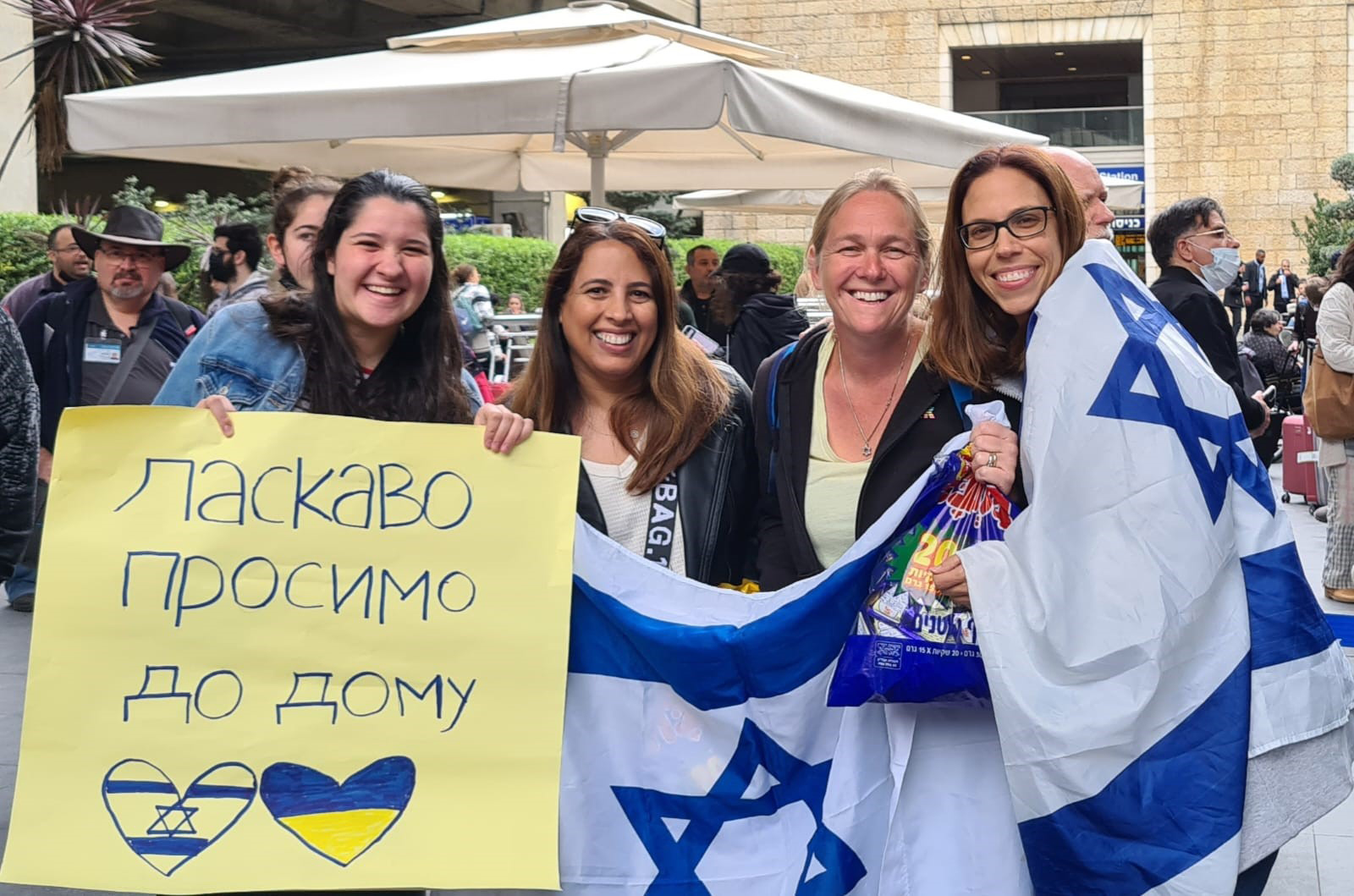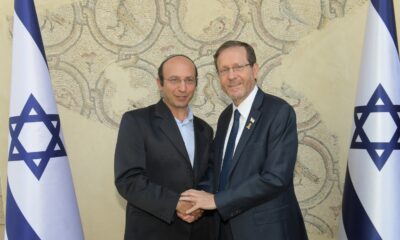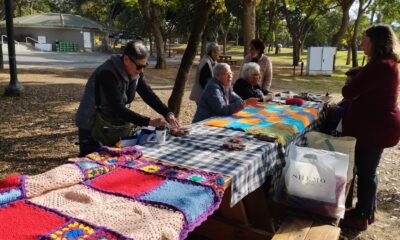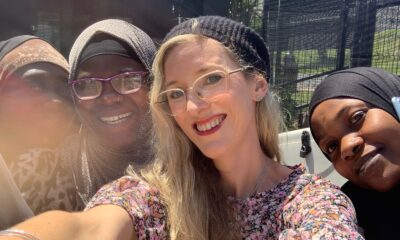
Featured Item

SA olim reach out to refugees
As bewildered and distressed Ukrainian refugees land at Ben Gurion Airport in Israel, olim – some of who are from South Africa – are there to welcome them.
“It’s hard making aliya under the best conditions. We can’t comprehend these conditions,” says Andi Saitowitz, a South African olah who took time out of her busy life to welcome a plane load of new immigrants. “Knowing that you have your people waiting for you with open arms enveloping you with love and unity makes the hard times that much brighter,” she said.
Saitowitz made aliya from South Africa more than 20 years ago. Now, she’s one of the many olim who chose to be at the airport to welcome the refugees.
“We decided to go to the airport to welcome the new olim and encourage them with love, song and support,” she said after being there last week to meet those arriving from Ukraine to rebuild their lives in Israel.
“The love we experienced at the airport was unbelievable … total strangers coming together like family, embracing in tears. It was such a special feeling,” Saitowitz says. “It was amazing to witness people coming together, human to human, sending a message that ‘you’re not alone’. That’s the most important message one can send. Israel is this. No matter what hardship you face, there’s a constant value of ‘you’re not alone’.
“Singing together at the airport amid the heartache, pain and tears, there was tremendous gratitude, joy and appreciation for what we have; where we’ve been as a nation and people; and a huge sense of pride in who we are and what we stand for.”
As well as going to the airport, “we’re doing what we can. Our shul and community are incredibly special. We have so many chesed [kindness] initiatives under way now and the outpouring of kindness is extraordinary,” Saitowitz says. “Watching the news, one feels so helpless. So we do what we can and donate, help, collect, reach out and show up. That’s what it’s about – showing up however we can.”
Flying to Israel is just the beginning of a long journey of integration for these refugees. In the short and long term, they’ll need support every step of the way.
Eli Rudolph is one South African olah trying to provide these different layers of care.
On a personal level, Rudolph is acting as a kind of middleman, coordinating donations and providing information about what’s needed where. “There are thousands of refugees arriving. If they have family, they stay with them. If not, the government pays for them to go to a hotel, where they get breakfast and dinner. So we’re working to give them lunch and meet other needs like vouchers, toiletries and clothing.”
Rudolph, who has lived in Israel for nine years, works for the organisation Myisrael, which “raises money for small, incredible charities. We’ve just launched an emergency campaign for refugees to help them with both immediate and long-term needs,” she says. “People are really amazing. They want to help, but sometimes you’re giving and you don’t know where to, or you’re helping and there is just too much. A lot of what has been donated is being thrown away [because there’s too much of it].
“So the organisation is being very specific about where the funding is going and in making sure that donations have the maximum impact. The immediate need is to provide food vouchers, activity kits for kids while their parents are busy dealing with bureaucracy, blankets and clothes. Long-term care includes cultural integration and therapy.”
In between all this, she receives calls from people across the country trying to do their bit. “For example, a man who ran runs a small yeshiva called to ask how he can make Purim special for the refugees. He’ll now visit them on Purim so they can hear the megillah and receive mishloach manot.”
Telfed is also working around the clock to assist the refugees on top of its mandate of caring for South African and Australian olim. “We’re working in coordination with the ministry of aliyah and integration and it has asked us to focus our efforts on two hotels in the Netanya region,” says Telfed chief executive Dorron Kline.
“There are collections all over the country. Every Facebook and WhatsApp group has been filled with requests for assistance and, in true Israeli spirit, the hotels have been overwhelmed with donations and some have even requested that people stop bringing! In anticipation of this and with our knowledge of the challenges of integration, we decided to focus our efforts on children. By extension, we hope to give the moms some ‘time out’, remembering that they’re here alone as men between the ages of 18 to 60 haven’t been allowed to leave,” says Kline.
“We’ve already begun a collection of new school supplies, games and sports equipment through our network of regional volunteers and our Ra’anana office will be the centre for collections. The children will need supplies when they start school [backpacks, books and stationery]. Aware of the language barrier, we know that sport, music, dance and games can be played in any language.
“In recent meetings with our team, including our social worker, discussing where we can really make a meaningful and practical contribution, we looked at trauma and the importance of social interaction in building confidence and easing integration.
“Together with our PRAS and SASI students [recipients of Telfed scholarships through our PRAS volunteer-based programme and SASI – South Africans Studying in Israel] we’ve already begun arranging activities for children,” he says. “As things stand, our plans include a Pesach holiday camp for the children. The situation is dynamic, but we’re in contact with government officials and we’ll keep the community updated about upcoming projects.”
Josie Lutrin, who made aliya just seven short months ago, is another South African olah who can identify with the challenges of building a new life in a new country. On Sunday, 13 March, she and her daughter went to pack mishloach manot for refugees, focusing on children. The event was organised by Just One Chesed, a kindness/outreach movement connecting volunteers and those in need.
Lutrin says it was meaningful for her to do this because, “It’s important for me that my kids have an awareness of others around them, not just in their immediate community. It helps them to have compassion for people who are suffering. It’s easy to live in a bubble in Glenhazel or Ra’anana [where she lives]. Hopefully, by bringing a bit of joy to these kids, my own children will also gain an appreciation for all that they have.”











Debbie Shany
March 17, 2022 at 4:21 pm
Kol hakavod. Proud of you